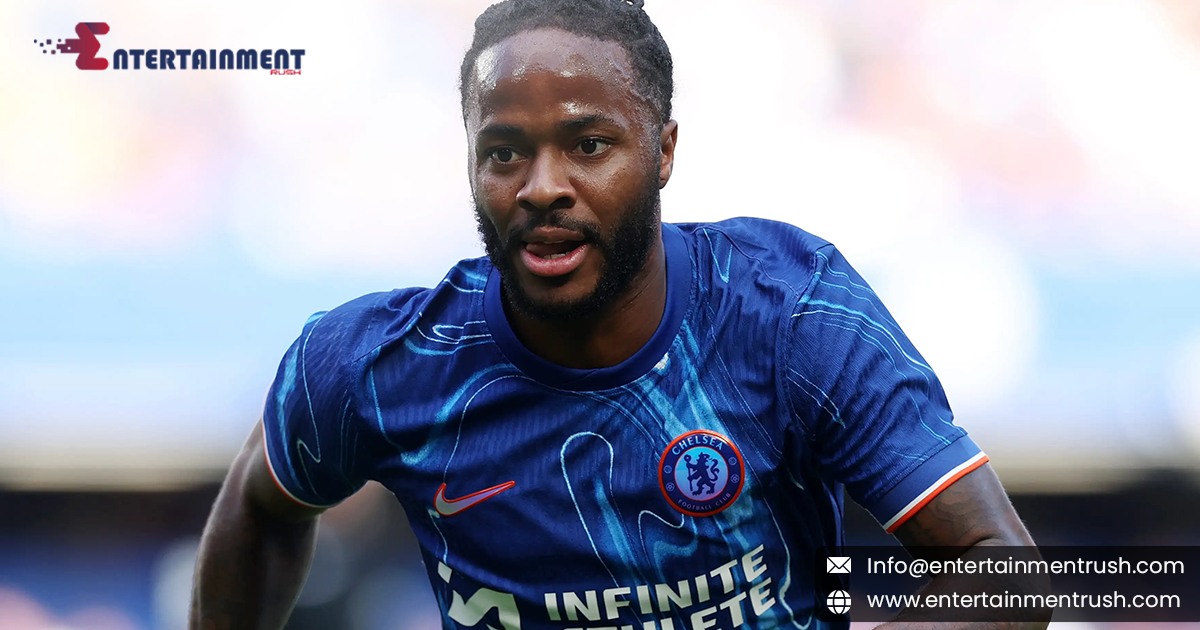In the world of football, every decision can be subject to scrutiny, especially when it involves high-profile players and clubs. One such intriguing decision came to light when William Gallas, the former French footballer, recently explained why Enzo Maresca, a rising star in coaching, was hesitant to see Raheem Sterling join Chelsea. This revelation has sparked interest among fans and pundits alike, as it sheds light on the behind-the-scenes dynamics of transfers and managerial preferences.
The Sterling-Chelsea Transfer Saga
Raheem Sterling’s transfer to Chelsea was one of the most talked-about moves in the Premier League. A versatile winger with pace, skill, and experience, Sterling was seen as a perfect fit for Chelsea’s attacking ambitions. However, according to Gallas, Enzo Maresca, who was an influential figure behind the scenes, had reservations about the move.
Maresca, known for his tactical acumen, had a clear vision for the kind of player he wanted to bring to Chelsea. His concerns over Sterling’s role in the team were more than just about form or talent. As Gallas explained, it came down to a difference in style and philosophy that made Maresca cautious about the acquisition.
Gallas Sheds Light on Maresca’s Decision
In a candid interview, Gallas explained that Maresca’s reluctance stemmed from a belief that Sterling may not seamlessly fit into the tactical framework Chelsea was building at the time. “It wasn’t about Sterling’s abilities as a player,” Gallas emphasized. “It was about how he would fit into the specific vision Maresca had for the team.”
Maresca’s focus was on constructing a team that played with a certain structure and intensity. Sterling, while undoubtedly a world-class player, is known for his individual flair and ability to create moments of brilliance on his own. Gallas highlighted that Maresca valued a more cohesive, system-based approach where every player adhered strictly to tactical responsibilities. In his eyes, Sterling’s playing style might have disrupted the balance he was aiming for.
Tactical Considerations and Style Clashes
Maresca’s vision for Chelsea revolved around control and fluidity in play. He preferred players who were not just technically gifted but also tactically disciplined. Raheem Sterling’s attacking prowess and ability to take on defenders were undeniable, but Gallas pointed out that Maresca may have been concerned about Sterling’s tendency to drift into creative spaces, which could clash with the system Chelsea was developing.
Gallas further noted that Maresca had a preference for players who offered more defensively, particularly in pressing high up the pitch and tracking back to recover possession. Sterling, primarily known for his offensive capabilities, may not have aligned with this defensive requirement, leading Maresca to question how Sterling would fit into the team’s overall strategy.
Personalities and Leadership
Aside from tactical reasons, Gallas also hinted at a possible clash of personalities. Football teams are often a delicate balance of characters, and bringing in a high-profile player like Sterling can sometimes disrupt the team dynamic. Maresca, as someone deeply invested in team chemistry and leadership, may have had concerns over how Sterling’s influence in the dressing room would align with the existing leadership group.
According to Gallas, Maresca’s decision was not a reflection of Sterling’s quality as a player but more of a precautionary measure. He wanted to ensure that every new addition to the team enhanced the collective effort rather than standing out as an individual force. This holistic approach, Gallas suggested, was at the heart of why Maresca never wanted Sterling at Chelsea.
Lessons from Gallas’s Insight
The EPL is often a battleground of egos, tactics, and team management. Gallas’s explanation offers a valuable glimpse into the complexities that managers face when considering transfers. It’s not just about talent—it’s about fit, both tactically and personally. Maresca’s decision, as revealed by Gallas, underscores the importance of alignment between a player’s style and the manager’s vision for the team.
While Raheem Sterling eventually did make his move to Chelsea, the insights provided by William Gallas give us a deeper understanding of the considerations that went into that decision. It serves as a reminder that football is as much about strategy as it is about skill, and managers like Maresca play a critical role in shaping the long-term success of their teams.
EPL: Gallas Explains Why Maresca Didn’t Want Sterling at Chelsea highlights the complex world of football transfers, where tactical fit and managerial vision often outweigh pure talent. As fans continue to watch Sterling’s journey at Chelsea unfold, Gallas’s revelation adds an intriguing layer to the story, making it clear that decisions in football are rarely straightforward.
